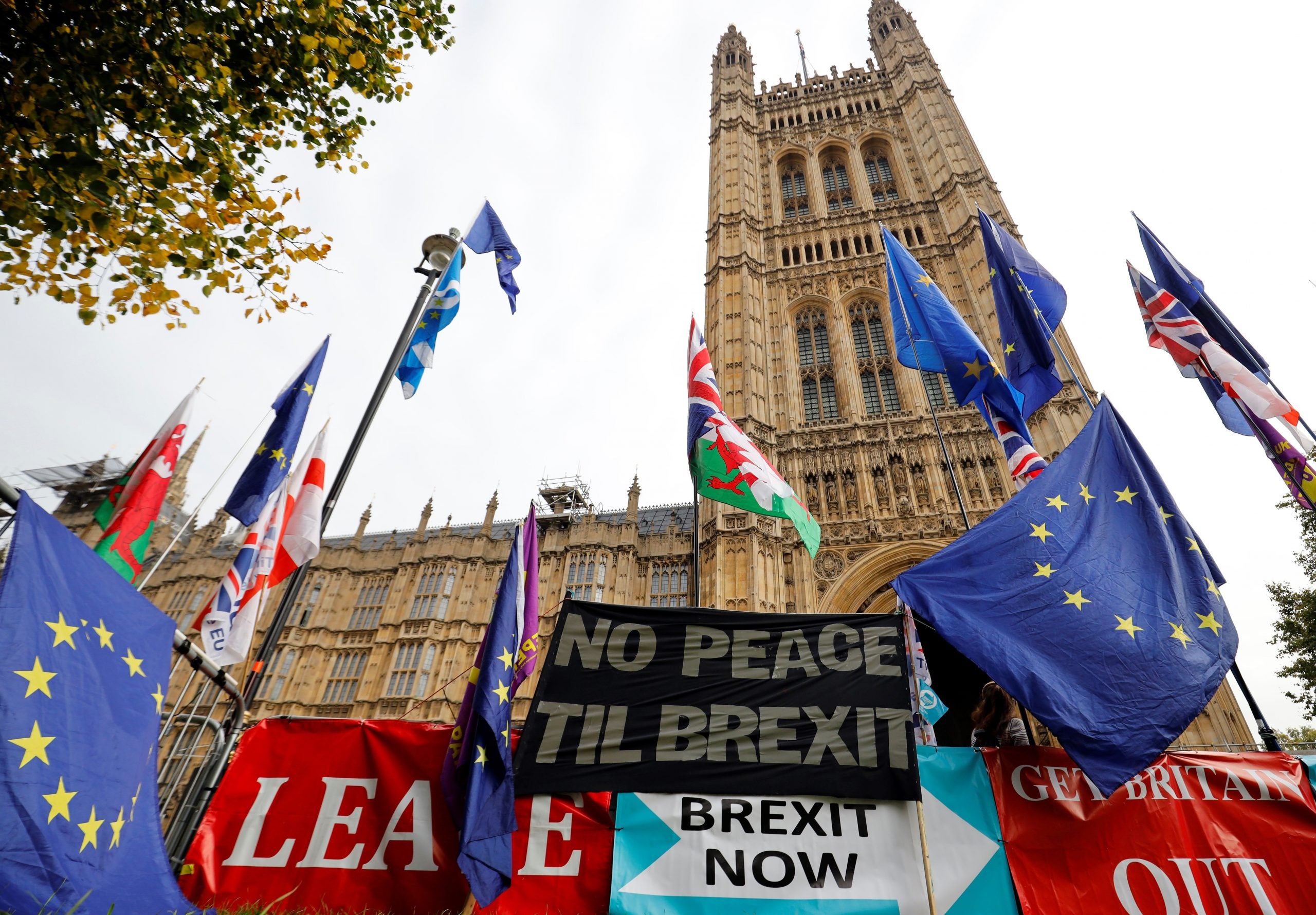Brexit may be approaching its 100-day anniversary, but it seems more like 100 years to some. The debates, claims, counterclaims and so on over the UK’s membership of the EU have in some ways been going on since the 1960s, when the UK first applied to join what was then the European Economic Community, only to be given a firm and consistent ‘non’ from French President Charles de Gaulle. The UK finally got its ‘oui’ in January 1972, and the matter was closed. No further debates were to be had and the bloc continued forever more in perfect harmony.
Well, not quite.
The grumblings over the signings of the Maastricht and Lisbon treaties grew into something of a roar around the turn of the millennium, and by the time Nigel Farage was elected as leader of the UK Independence Party in 2006, the anti-EU movement had real momentum behind it. Fast-forward a decade, and the UK voted by 52% to 48% to leave the EU in June 2016. The UK then moved seamlessly towards a Brexit deal that suited all parties – Brexiteers, Remainers, the EU, everyone.
Well, not quite.
Brexit saw the back of two prime ministers – David Cameron and Theresa May – and brought Boris Johnson into the job that he had coveted for so long. Johnson called a general election in December 2019 with a manifesto that consisted of little more than three words: ‘Get Brexit done’. A UK electorate, fatigued by the endless arguments around the issue, liked the sound of this and the Conservative Party won by a landslide. For much of a Covid-dominated 2020 it seemed as if the UK was heading for a no-deal Brexit scenario on the 1 January 2021 deadline, but at the last minute an agreement was signed between the two parties. The UK was now free to enter into a Brexit that was simultaneously ‘prosperous’, ‘red, white and blue’ and could be located on a ‘broad, sunlit upland’. Investment Monitor has been covering Brexit at close quarters. So, 100 days in, how is the UK progressing?
Brexit by numbers
In the years preceding 2016, the UK had been a foreign direct investment (FDI) powerhouse. Based on population size, few countries punched more consistently above their weight than the country that was a draw for investment in an array of sectors as diverse as financial services, tech, renewable energy, agriculture and automotives. However, since the 2016 referendum, the UK’s FDI attractiveness has taken a hit. In 2017–18, the number of FDI projects coming into the UK fell by 9.3%, and in 2018–19 it fell again by a further 16.3%. However, in 2019–20 there was a small rebound (up 3.8%).

US Tariffs are shifting - will you react or anticipate?
Don’t let policy changes catch you off guard. Stay proactive with real-time data and expert analysis.
By GlobalDataThe UK attracts investment from all around the world, but how have Europe’s largest companies reacted to the divorce from the EU? The Monitor Network’s multinational companies (MNC) database contains information on 2,190 of the world’s top MNCs by revenue, including how many subsidiaries they have and where they are located. Of these, 384 are headquartered in Europe (excluding the UK) and have established 60,760 subsidiaries, of which 3,671 are located in the UK. It is too early to judge any long-term impact regarding the activity of these companies, but in sectors such as financial services – all important to the UK and particularly London – many big names have already moved operations from the UK, with others waiting for the final details of the memorandum of understanding between the UK and the EU on what it will mean for companies operating in the sector.
Other areas facing a whole new set of challenges because of Brexit include manufacturing, automotives, logistics, foreign investment more generally, and UK companies that still require a presence in the EU, and the topic has even heightened the debate over Scottish independence, while bringing both uncertainty and opportunities to Northern Ireland. After much rancour on both sides of the Brexit debate, the voices of reason seem few and far between. Hopefully, as things settle, more will view the issue like Christoph Leitl, the president of Eurochambres, who says: “Both sides could damage the other by not trading with each other, so I think there should now be less emotion and more reason in this bilateral behaviour.”
The Covid-19 pandemic – and the economic strife that it has brought with it – has made the impact of Brexit harder to decipher for many in the UK, although the recent unrest on the streets of Northern Ireland offers a grim reminder of the potential repercussions of the deal. Many of the more prominent MPs who backed the Leave campaign have been at the helm over the course of the agreement, and will have nowhere to hide should the promises made in 2016 and beyond not be delivered upon. The numbers cannot lie, and with regards to FDI at least, the early signs are not particularly positive. Should this last, there is no amount of announcements, such as the introduction of free ports or a national infrastructure bank, that will be able to paper over these issues.
Home page image by Tolga Akmen/AFP via Getty Images




